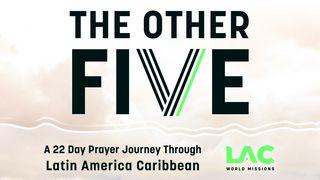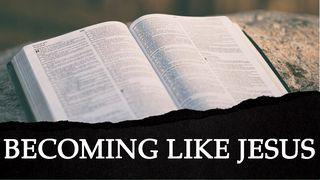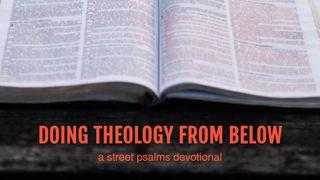After "I Believe"Sample

Day Three: Talking to God
You’ve now clothed yourself with your new identity and you have your guidebook in hand—the Bible. But did you know that you also have a Guide to lead you? The same God you said “I believe” to is at your side every moment of your new life. All you have to do is talk to Him, and that’s called prayer.
Prayer is not simply communication; it is a relational event. It’s not just the transmission of information—it’s a time when you as a child go to your Father in heaven and spend time talking to Him.
But how? What should you say? Jesus gave us a guide for prayer in Matthew 6:7-15, commonly known as The Lord’s Prayer. Although it’s not meant to be repeated as a formula, it does provide important insights for how we might talk to God.
First, Jesus shows us that when we talk to God in prayer, we should be intimate. Like a child to their father. When a child talks to a parent in a healthy parent-child relationship, there is disarming honesty, an absence of guilt, utter transparency, boundless affection, unquenchable curiosity and absolute truth. This is exactly what God wants from us.
Jesus also lets us know that when we talk to God in prayer, we should be expectant. We should pray as if we expect it to matter—expect God to be able to respond and in ways only God can. One of the healthiest things you can do when you’re praying is to remind yourself that you are praying to the God who has done every single miracle in all of human history.
We are also to pray reverently. In other words, pray in a way that honors God, lifts Him up, holds Him in high regard and respects Him.
Then, pray submissively. You see, the goal of prayer isn’t that we bend God’s will to ours, but to pray in such a way that we bend our will to His. To find out what He is doing and then join Him.
We should also be dependent when we pray. Not with a spirit that demands but with a spirit that depends on God.
Lastly, when we pray we should be honest and humble. Honest about our sin and with the humility we need to be on guard against temptation and the evil one.
If someone were to eavesdrop on your prayers, what might they conclude about God? Which of these postures of prayer—intimate, expectant, reverent, submitted, dependent, honest, and humble—do you most and least reflect as you talk to God?
Scripture
About this Plan

The first step in entering into a relationship with God is to simply say, “I believe.” But what few realize is that those two words signal the beginning of a journey, not the end. What comes next is a lifelong adventure of discovering new depths of God and experiencing His transformation in your life. Allow this devotional to serve as your guide, helping you navigate the journey ahead.
More
| We would like to thank Baker Publishing for providing this plan. For more information, please visit: http://bakerpublishinggroup.com/ |









